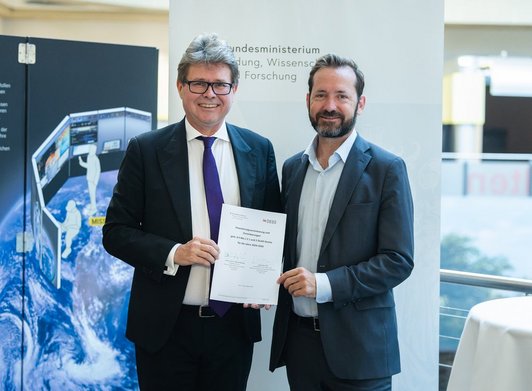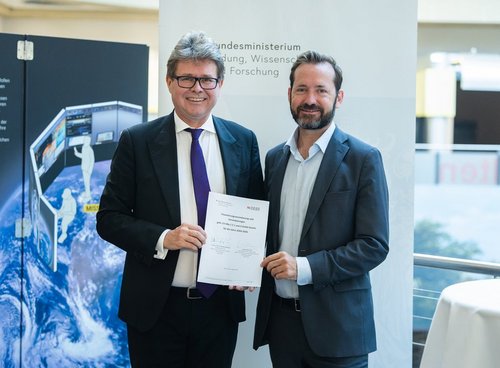BM Polaschek: 9.5 million euros for science communication - funding for 27 ‘Sparkling Science’ projects
Arousing interest and strengthening trust in science and democracy - these are important goals of the ‘DNAustria’ initiative presented by Federal Minister Martin Polaschek at the beginning of this year. The OeAD, Austria's Agency for Education and Internationalisation, makes an important contribution to this, for example with the citizen science programme ‘Sparkling Science’, the children's and youth universities and the science ambassadors. In addition, the OeAD implements central initiatives of the BMBWF, such as ‘Extremism Prevention at School’ in the form of tested workshops for schools throughout Austria.
Martin Polaschek, Federal Minister of Education, Science and Research:
‘The OeAD is the most important partner for the implementation of central departmental priorities. The field of activity ranges from the critical examination of our history through the OeAD programme ERINNERN:AT, the implementation of the ‘Extremism Prevention in Schools’ initiative and the promotion of art and culture to essential DNAustria measures to strengthen confidence in science and democracy. This includes important initiatives such as the children's and youth universities, science ambassadors and ‘Sparkling Science 2.0’. In order to continue to implement these tasks so successfully, we are providing the OeAD with a total of around 160 million euros from the BMBWF for the years 2024 to 2026. This corresponds to an increase of 30 million euros compared to the last funding period.’
The BMBWF has been funding high-quality citizen science research projects with ‘Sparkling Science’ since 2007. As part of these projects, pupils at all school levels and partners from civil society and business are actively involved in research processes. The aim is to answer scientific questions through close co-operation with the project partners and to become more familiar with scientific working methods and methodology. On the one hand, this is intended to strengthen trust in science in the long term and, on the other, to strengthen citizen science skills in the scientific community. A total of 9.5 million euros was available in the 2nd call for proposals of the current programme period. 27 projects were awarded funding.
Jakob Calice, Managing Director of the OeAD:
‘I am very pleased about the new funding agreement with the BMBWF. This is a continuation of the OeAD's efforts to develop into Austria's education agency and to support both scientific and educational institutions. The additional funding will enable us to further promote science education, for example. With ‘Sparkling Science 2.0’, we are setting absolutely new standards in terms of science enthusiasm. The projects not only provide answers to the burning questions of our time, they also establish innovative research methods and get young people excited about science.’
One best-practice example is the ‘Sparkling Science’ project ‘This is (not) Rocket Science!’ organised by the Vienna Technical Museum. The project offers a platform for research and co-design in the field of space research. Over the course of three years, children and young people from the Bildungsgrätzl Schönbrunn will be intensively involved with current topics from space research, such as ‘Satellites and space debris’ or ‘Women in space’. The children's ideas will be incorporated into an upcoming special exhibition on space travel, which will open in 2027.
Peter Aufreiter, Director General of the Vienna Technical Museum:
‘The question of what our future might look like in space concerns children and young people first and foremost: through the ‘This is (not) Rocket Science!’ project, which is funded by ‘Sparkling Science’, young people are dealing with very specific research questions. We are delighted to be able to create an interface between research and educational institutions at the Vienna Technical Museum with this citizen science project, from which all sides benefit.’


